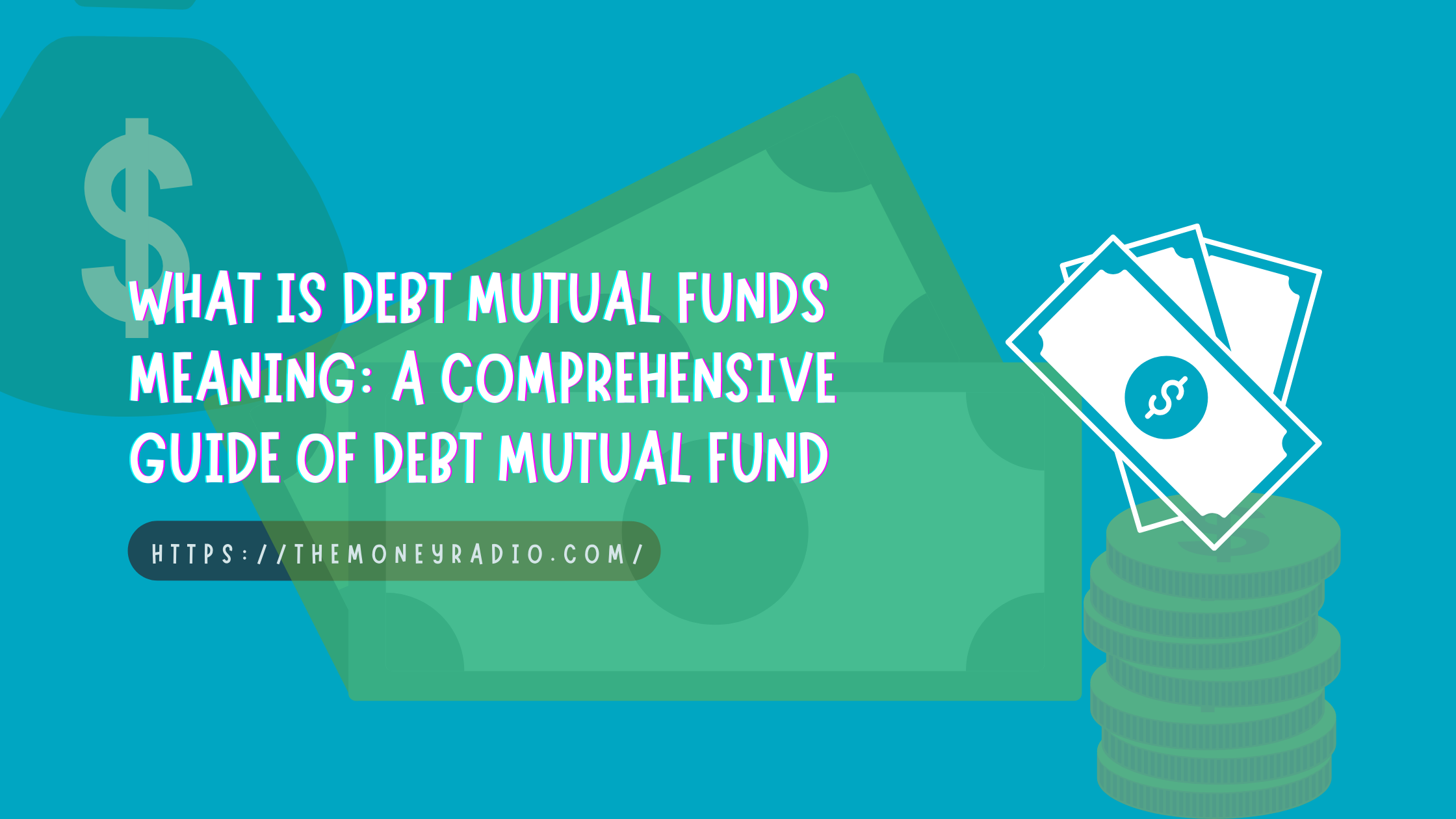Welcome to our comprehensive guide on debt mutual funds. As an experienced team of financial experts, we are dedicated to providing you with valuable insights and information that will help you navigate the world of bond funds with confidence. In this guide, we will delve into the intricacies of fixed income funds, highlighting their benefits, types, investment strategies, and key considerations. Let’s begin!
Table of Contents
What Are Debt Mutual Funds?
Debt mutual funds are investment vehicles that pool money from investors to invest in a diversified portfolio of fixed-income securities. These funds primarily invest in government bonds, corporate bonds, treasury bills, and other debt instruments. Fixed-income funds aim to generate regular income and preserve capital while offering relative stability compared to equity investments. Debt mutual funds is also known as fixed-income funds or bond funds.
Benefits Of Investing In Debt Mutual Funds
Investing in debt mutual funds offers several advantages:
Regular Income
Debt mutual funds provide investors with a steady stream of income in the form of periodic interest payments earned from the underlying securities.
Diversification
By investing in a diversified portfolio of debt instruments, bond funds help reduce the risk associated with individual securities and enhance the overall portfolio’s stability.
Lower Volatility
Debt mutual funds tend to be less volatile compared to equity funds, making them suitable for investors seeking stable returns and capital preservation.
Liquidity
Debt mutual funds offer high liquidity, allowing investors to redeem their units at the prevailing Net Asset Value (NAV) on any business day.
Professional Management
Fixed-income funds are managed by experienced fund managers who conduct in-depth research and make investment decisions based on their expertise and market analysis.
Types Of Fixed Income Funds
Debt mutual funds can be classified into different types based on the nature of the underlying securities:
Government Securities Funds
Government securities funds primarily invest in fixed-income securities issued by the government, such as treasury bonds and securities. These funds are considered relatively low risk, as they are backed by the government.
Corporate Bond Funds
Corporate bond funds invest in debt securities issued by corporations. These funds vary in terms of credit quality, ranging from investment-grade corporate bonds to lower-rated bonds with potentially higher yields.
Treasury Funds
Treasury funds focus on investing in short-term treasury bills and other government securities with a shorter maturity profile. These funds offer relatively low-risk investments and are suitable for investors with a shorter investment horizon.
Dynamic Bond Funds
Dynamic bond funds have the flexibility to invest across various durations and credit profiles based on the fund manager’s outlook on interest rates and market conditions. These funds aim to capture opportunities in the bond market.

Factors to Consider Before Investing in Bond Funds
Before investing, it is crucial to consider the following factors:
Risk and Return Profile
Different bond funds carry varying levels of risk and potential returns. It is essential to assess your risk tolerance and investment goals to choose a fund that aligns with your requirements.
Investment Horizon
Your investment horizon plays a significant role in selecting the right debt mutual fund. Longer-term funds may be suitable for goals with extended timeframes, while shorter-term funds are appropriate for immediate or near-term requirements.
Credit Quality of the Portfolio
Evaluating the credit quality of the underlying securities is crucial. Higher-rated securities offer lower default risk but may provide relatively lower yields, while lower-rated securities may offer higher yields but carry a higher risk of default.
Expense Ratio
The expense ratio represents the annual fees charged by the fund house for managing the fund. It is important to consider the expense ratio and choose funds with competitive fees that do not significantly erode your returns.
Investment Strategies
Debt mutual funds employ various investment strategies based on market conditions and fund objectives. Here are a few commonly used strategies:
Duration-based Strategy
Duration-based strategies focus on capitalizing on interest rate movements. Fund managers adjust the average portfolio duration based on their outlook on interest rates, aiming to benefit from changes in bond prices.
Accrual-based Strategy
Accrual-based strategies focus on generating income from the interest payments earned by the underlying securities. Fund managers select securities with attractive yields and hold them until maturity or until they offer favorable opportunities to sell.
Yield Curve Strategy
Yield curve strategies involve investing in bonds with different maturities to take advantage of the yield curve’s shape. Fund managers analyze the yield curve and adjust the portfolio’s maturity profile accordingly.
Tax Implications of Debt Mutual Funds
Fixed-income funds have specific tax implications based on factors such as the holding period and the type of fund. Short-term capital gains (holding period less than three years) are taxed as per the individual’s income tax slab, while long-term capital gains (holding period more than three years) are subject to a flat rate with indexation benefits.
How To Choose The Right Debt Mutual Fund
Choosing the right fixed-income fund requires careful consideration of your investment objectives, risk tolerance, and investment horizon. It is advisable to consult with a qualified financial advisor who can assess your requirements and recommend suitable funds.

